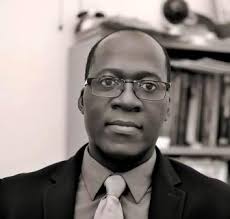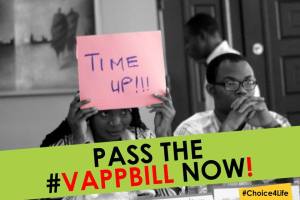
Dr Laz Ude Eze
Last year, I met Mgborie (not real name), a 27 year old lawyer battling breast cancer and soliciting for funding support. The cancer was already in a late stage (Stage 4) and she was scheduled for surgery and radiotherapy having completed chemotherapy. She was the first child with six siblings all of whom were in school and had lost both parents. The family looked forward to her graduation to enable her secure a job and support the training of her younger ones. Four years earlier, she found a lump in her breast and went to a hospital where it was surgically removed. The lump reappeared 2 years later and was found to be cancerous. She battled the disease with hope of survival and lost the battle last year. If she was not living in Nigeria, she would have probably won the battle and still be alive. “Why”, you may ask, please find out in the subsequent paragraphs of this article.
Cancer is a disease which abnormal cells of the body divide uncontrollably and destroys the body tissue or organ. It may affect virtually every part of the body except the hair and nails. It is treatable and curable especially when detected early. According to the latest estimates by the International Agency for Research on Cancer (IARC), the global burden of cancer rose to 18.1 million new cases and 9.6 million deaths in 2018. In Nigeria, more than 100,000 cases are diagnosed annually and over 90% of them die from the disease, thereby putting us in an ignominious position of being the country with the highest number of cancer deaths globally.
In fact, Nigeria is plagued by a triple whammy – a high burden of communicable diseases, a rising burden of non-communicable diseases and persistently high incidence of road traffic injuries. The health system is very weak and unable to meet most of the health needs of the citizens. The funding for the health sector has remained very poor and continuously decreasing especially in the past six years. Yet, the rising burden of diseases is an indication for a substantial and sustainable increase in public funding for health care.
Each year on 4 February, the global community commemorates the World Cancer Day to enable every one of us across the world to show support to people fighting cancer, raise our collective voice against the disease, take personal action and press our governments to do more on cancer control. This year’s is not an exception as government and civil society organisations have lined up activities to commemorate the day. Coincidentally, Nigerians will be going to the polls to elect a new set of leaders at the national and sub-national levels. It provides an opportunity for citizens to elect candidates with demonstrable commitment to prioritise health and improve access to qualitative screening, diagnosis and treatment of cancer in Nigeria.
The essential ingredients required for cancer control are cancer awareness and early detection with prompt and effective treatment. To improve knowledge and understanding of cancer prevention practices, consistent public awareness must be created using multiple mass media platforms and inter-personal communication models. To prevent cancer, healthy diets, regular exercise and HPV & HBV vaccination must be promoted and made available and accessible to everyone who needs it. To detect cancer early, there must be a screening program for common cancers like breast, cervical, prostate and colon cancer. For this to be successful there must be citizens’ awareness and education, available of a well-motivated skilled manpower and equipment and equitable distribution of both across the country. When cancer is detected, immediate commencement of qualitative treatment is required. For treatment to be qualitative, it must be done by a team of experts including oncologists, nutritionists, radiologists, clinical psychologists, etc; in a timely manner using well-maintained modern equipment and facilities. Do we have all these in Nigeria? Your guess is as good as mine.
Please permit me to quickly summarise the experience of most cancer patients in Nigeria. They usually present in late stages (more than 80%). The diagnostic tests are usually invasive and sometimes take months, delays caused by overcrowding of facilities, inability to pay for the tests or health workers strike. After confirmation of cancer diagnosis, the patient may go into the denial stage with utterances like “I reject it! It is not my portion!!” Many family members or friends would recommend a religious treatment centre for divine healing; others may recommend traditional medicine while a few may opt for orthodox medicine. While some who opted for miraculous or trado-medical healing may succeed, majority of them end up in hospitals in critical conditions.
More so, many of the people who went for the orthodox treatment option usually have gory tales arising from inability to pay out-of-pocket, long waiting time in health facilities, poor counseling services, rude behaviours of some care providers and frequent treatment interruptions caused by unavailability of some chemotherapy drugs, lack of or frequent breakdown of CT scan and radiotherapy machines, and health workers strike. The available treatment facilities are grossly inadequate. For example, the Pink Oak Cancer Trust paid for radiotherapy at the National Hospital Abuja for a cancer patient in November 2018 but she’s yet to be commenced on treatment due to a long queue of patients. There were only two functional radiotherapy centers in Nigeria in January 2019; more than 200 is needed for our population. Lobbying for treatment is at its peak. A patient told me she was going to the hospital every day by 7.00am and sometimes waited till 1.00am of the subsequent day in order to get treatment. “Horrific”, you may say but it’s only a tip of the iceberg.
Do you now realize why Mgborie died? Hers was a case of mismanagement. Had the doctor that removed her breast lump in 2014 done biopsy, the cancer might have been detected, treated and cured. When the lump recurred in 2016, the cancer had already spread to other parts of the body, prognosis poorer and a chance of survival was minimal.
How do we solve this problem? The approach to health care in Nigeria must shift from management of diseases to management of health. This is where the next set of political leaders has a big role to play. All levels of governance have a critical role to play in cancer control. The local government should be responsible for awareness creation and health education in communities. The state and federal government should work collaboratively to ensure availability and access to cancer screening services, well-motivated skilled manpower, chemotherapy drugs, equipment and maintenance of same and sustainable financing for cancer care.
According to Nigeria’s National Cancer Control Plan (2018-2022), an estimated sum of N97.3 billion is required to implement the plan. The next President must lead this effort by investing substantial public funds in cancer control and inspiring states and local government areas to do same. The office of the president is the most powerful office in the country and should be used to save the lives of the predominantly productive population that is being cut short by cancer. The next president should strengthen the six building blocks of the health system and create an enabling environment for a humongous private sector investment in health care including cancer control. Private sector investment can be encouraged through offer of tax incentives, loan facilities with low interest rates, health insurance coverage for cancer prevention and treatment services, and availability of uninterrupted power supply in such facilities. The governors should also replicate same in their respective states. Can the next President and Governors say this, “I am and I will” implement the above recommendations? In the efforts to beat cancer, everyone has a responsibility. I am and I will continue to play my part, what about you?
Dr Laz is a public health management expert, Producer of TalkHealth9ja and the Executive Director of the Pink Oak Cancer Trust – Nigeria’s 1st Cancer Treatment Fund. You may contact him through laz.eze@pinkoak.org. He tweets as @donlaz4u.







